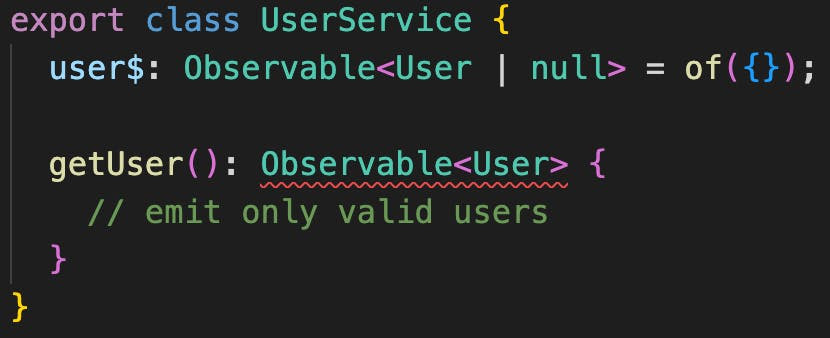Learn how to use TypeScript type guards. I am actually going to publish a video on this next week, but I am going to show you a quick example now where type guards can be extremely useful with observables.
Let’s take a look a this example:

I have a user stream that can either emit a user object or null. I then have a getUser method that I want to return a stream that only emits valid users, not null values.
It’s easy enough to do this with the filter RxJS operator:

The only problem is that, although we have filtered out any null values, TypeScript does not know that the values in this stream won’t be null now.
This is where we can use a type guard. The basic idea is that we can assign a type guard to a function that evaluates a predicate (i.e. it will evaluate to true or false). We use this type guard to tell TypeScript what type the data should be if the predicate returns true.
Our filter already uses a predicate to check for non null users - the filter function will return true or false. That means we can easily assign a type guard to this function:

Now we are saying that if the value passed into the filter (user) passes the check, it should be assigned the User type (user is User).
This is a reasonably basic but extremely useful example. In the video next week, we are going to dive deeper into using type guards in other situations and also creating a type guard that uses TypeScript generics.

